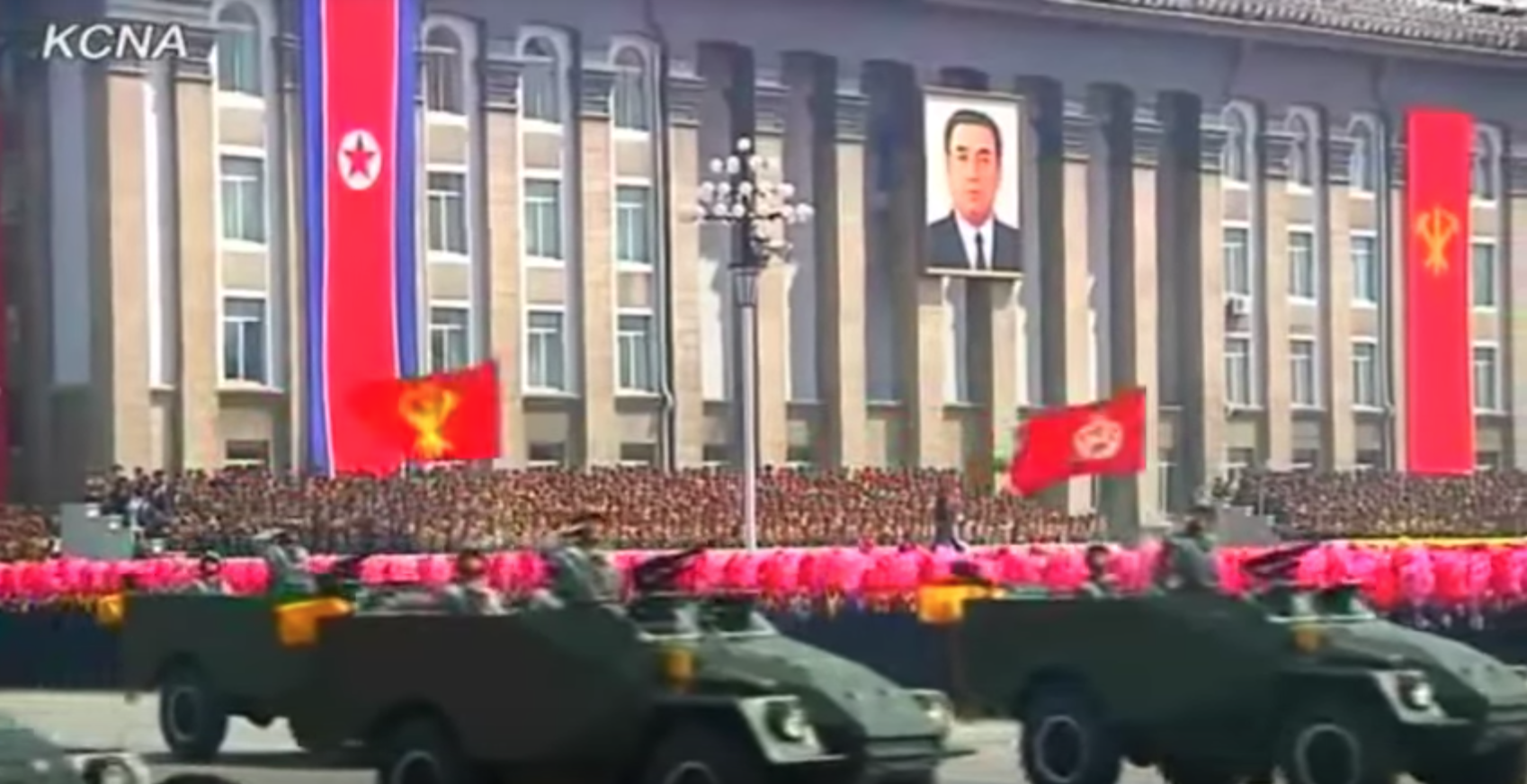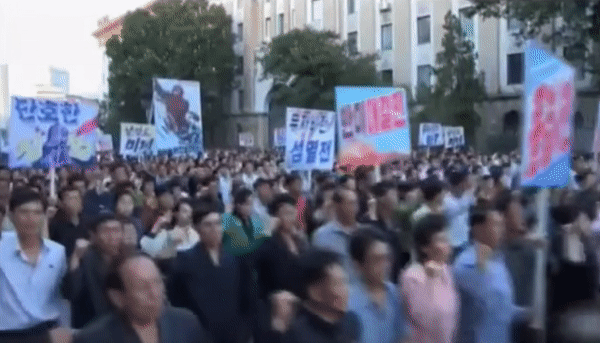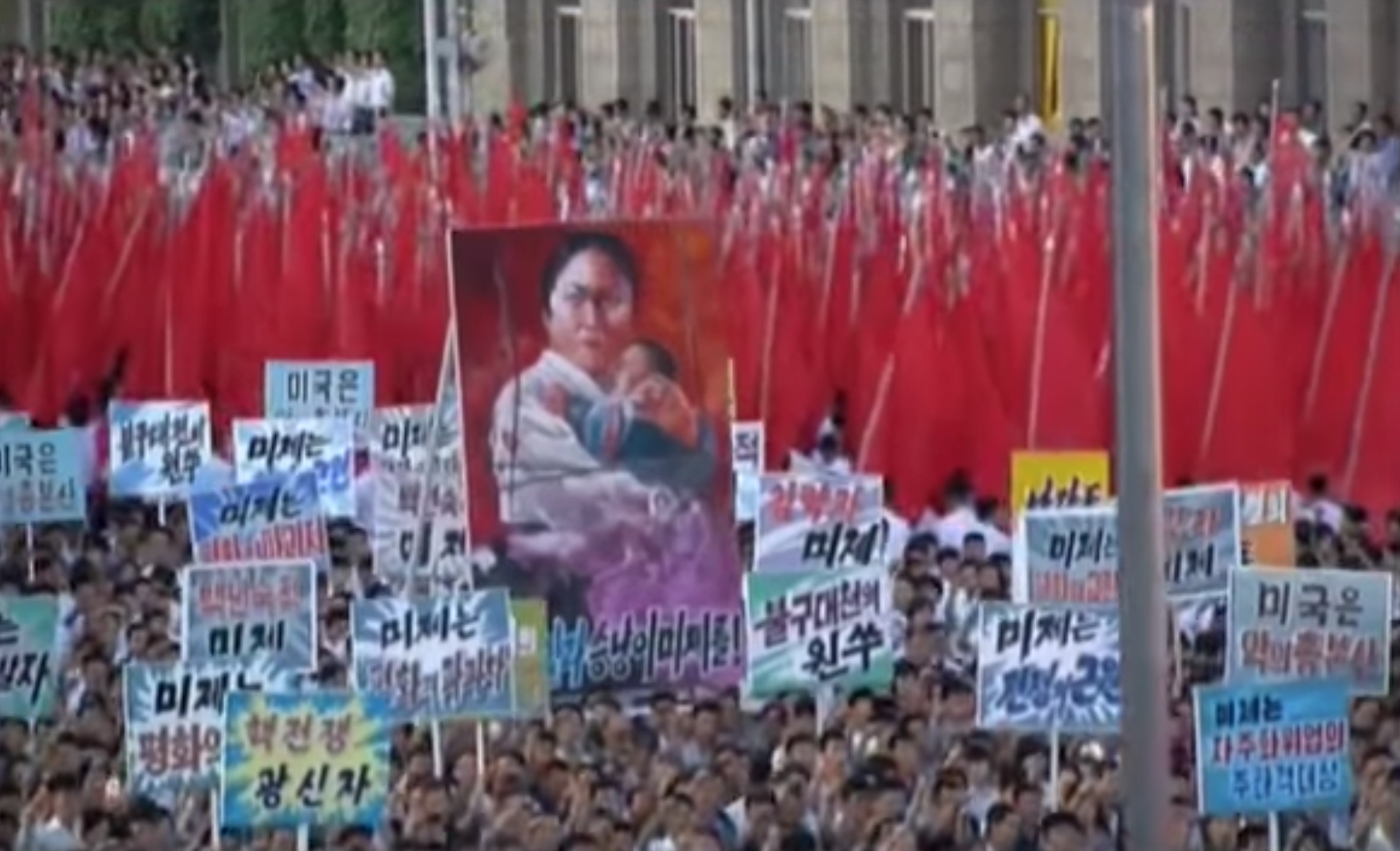North Korea has cancelled an annual "anti-U.S. imperialism" rally, in signs of warming relations with its longstanding enemy. This comes after a historic meeting between Donald Trump and Kim Jong-un at a summit held in Singapore in early June.
According to the Associated Press, no reason was given by North Korean officials who reported the cancellation.
What's the rally about?
The rally marks the start of the Korean War and kicks off a month of anti-U.S. events meant to stoke nationalist fervour and unity.
North Korean leaders have used the rally in the past to show the world their defiance and political beliefs.
It is also one of North Korea's most symbolically significant events.
It all culminates on July 27, which North Korea celebrates as a national holiday called the day of "Victory in the Fatherland Liberation War", or "Victory Day" for short.
 Screenshot via
Screenshot via
It marks the signing of the Korean Armistice Agreement which brought a cease fire to the 1950-53 Korean War, but left the Korean Peninsula separated by a Demilitarised Zone (DMZ) to this day.
The two Koreas are still technically at war now as no peace treaty was signed.
Anti-U.S. rallies are not uncommon in North Korea, where the people were taught since young to hate the "cunning American wolves".
On September 23 last year, more than 100,000 people in Pyongyang were gathered to rally against the "U.S. imperialists" in response to Trump calling Kim a "Rocket Man" in his first speech at the United Nations (UN).
 GIF adapted via
GIF adapted via
Tensions reduced in recent months
However, in the months leading to the June 12 Trump-Kim summit in Singapore -- the first held between a sitting American president and a North Korean leader -- North Korea has noticeably toned down its anti-U.S. rhetoric.
The summit saw North Korea pledging the start of a "new era" with the U.S.
North Korean state media were then flooded with coverage of the event. A 42-minue documentary which focused on Kim Jong-un was broadcasted and repeated often.
Trump's full name and official title were also reported, even though surnames and titles of foreign dignities are typically left out in the North Korean media.
[related_story]
No signs of denuclearisation from North Korea
However, critics have pointed out that despite North Korea toning down on its public antagonism of the U.S., not much progress has been made on denuclearisation, which is what the U.S. really wants.
Although Kim had signed the Joint Statement and promised the regime's "firm and unwavering commitment to complete denuclearisation of the Korean Peninsula", it has yet to take any steps towards that goal, despite Trump making a concession first by declaring an end to joint military exercises with South Korea.
Top image via
If you like what you read, follow us on Facebook, Instagram, Twitter and Telegram to get the latest updates.
